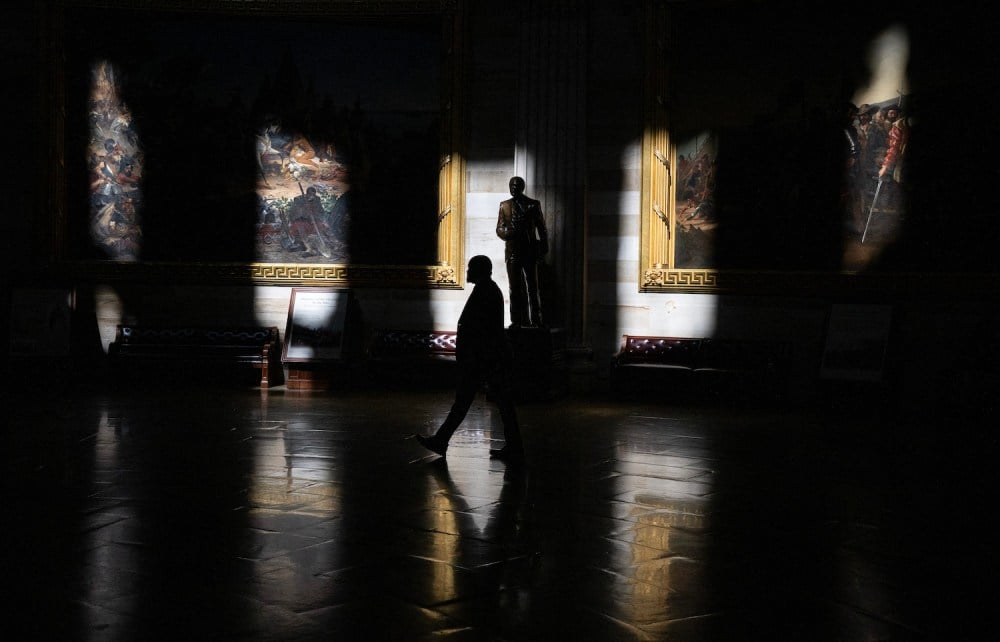The U.S. federal government shut down for the first time in nearly seven years on Wednesday after Democratic and Republican lawmakers were unable to agree on a spending deal, bringing key government services grinding to a halt and furloughing hundreds of thousands of federal workers.
Much of the immediate effect will be felt on the domestic front—the U.S. jobs report due to be released this Friday will be delayed, visitors to U.S. national parks will see a severely diminished staff presence beyond essential law enforcement and protective functions, flights may get delayed if essential but unpaid air traffic controllers and Transportation Security Administration workers choose to stay home or call in sick, and furloughs at the National Institutes of Health and the Centers for Disease Control and Prevention will impact basic research and disease monitoring.
But there are also significant implications for U.S. foreign policy and geopolitics. While many national security functions are exempted from a shutdown, the Defense and State departments are among those placing the most employees on leave. The Pentagon said it would furlough 334,904 employees, nearly half of its current civilian workforce; more than 2 million active-duty military service members will continue working without pay (though they would be given backpay once the shutdown ends and Congress appropriates the funds). The State Department will furlough more than a third of its direct-hire employees, impacting 10,436 people, it said in a plan released Wednesday morning.
The Defense Department listed six priority areas it would continue to focus on: border security, Middle East operations, depot maintenance, shipbuilding, critical munitions, and U.S. President Donald Trump’s “Golden Dome for America” missile defense project. Active and contingency military operations will remain unaffected, though some forms of “technical intelligence information collection” not related to core military functions, such as political intelligence gathering, will be paused.
That could eventually prove problematic, said one former U.S. national security official who served through two shutdowns during the first Trump administration, speaking on the condition of anonymity so as not to impact their current role.
“If you’re thinking about the geostrategic competition, obviously we want to keep our eyes wide open at all times given how fast things tend to happen,” the official said, adding that potential halts to military acquisition capabilities and cancellation of joint military exercises with allies can also gum up the works. “There’s just a lot of friction that happens,” the official said, and “making things happen in the Department of Defense becomes a lot more challenging.”
Washington’s foreign adversaries could position themselves to take advantage of the inherent dysfunction of a government shutdown (a phenomenon that is unique to the United States), according to Ned Price, who served as the State Department spokesperson and deputy to the U.S. ambassador to the United Nations under former President Joe Biden.
One is simply the messaging. “You never hear about the Chinese Communist Party shutting down its operations or the Kremlin shuttering its operations,” Price said, adding that it allows those adversaries to paint the United States as a “country in decline” that allies can’t depend on. “We can’t even keep the lights on, and so how can any country depend on a country like the United States. … That’s the kind of message that this allows them to send, accurate or not.”
Price, who was a CIA analyst when the government shut down in 2013 during President Barack Obama’s second term, also pointed to potential consequences for federal employee morale. “This is a workforce that is now being largely forced into the office without a paycheck,” Price said. “That would be a nuisance, it would be a challenge in a place like the Department of Agriculture or the Small Business Administration, but when the functions that these individuals are handling are core to our national security functions, that does have national security implications. When productivity saps, when demoralization takes over, that will have an immediate effect but also a compounding effect that will build over time.”
Government shutdowns have the added side effect of many employees simply choosing to leave the federal workforce, particularly in the wake of mass layoffs this year during Elon Musk’s time at the semi-official Department of Government Efficiency and the Trump administration’s threat of further layoffs during this shutdown.
“What worries me most is that a context like this can be a bonanza for foreign intelligence organizations,” Price said. “I don’t want to suggest that a government shutdown will result in a host of defections to hostile intelligence services,” he added, “but you think about the possibility of that happening once as a result of this or having this contribute to it, and that—as we know from Aldrich Ames and Robert Hanssen and others—can do untold damage to our national security.”
There’s also the impact on allies and partners. The Pentagon said in its contingency planning document that all visits by foreign dignitaries not deemed “necessary” for critical functions would be canceled during a shutdown. “It certainly makes things more difficult from a planning standpoint for allies who are already sort of wondering about our intentions and actions,” the former national security official said, recalling instances during previous shutdowns where U.S. military exercises had to be either canceled or curtailed. “That degrades military readiness. It degrades interoperability with our allies and partners—all those things are things that we should be worried about.”
One European diplomat, speaking to Foreign Policy on condition of anonymity to discuss operational details, said an official from their country was scheduled to visit Washington in the coming weeks and had requested several meetings at the State Department. They were told Wednesday morning that confirmation of all those meetings would be delayed until at least Friday and that the U.S. government employee coordinating the meetings would have to switch off their work devices. “There might not be people to escort us through the door or bring us coffee,” the diplomat said, adding that they plan to wait until the middle of next week before canceling the official’s trip.
The post How a U.S. Government Shutdown Could Impact Washington’s Foreign Policy appeared first on Foreign Policy.




